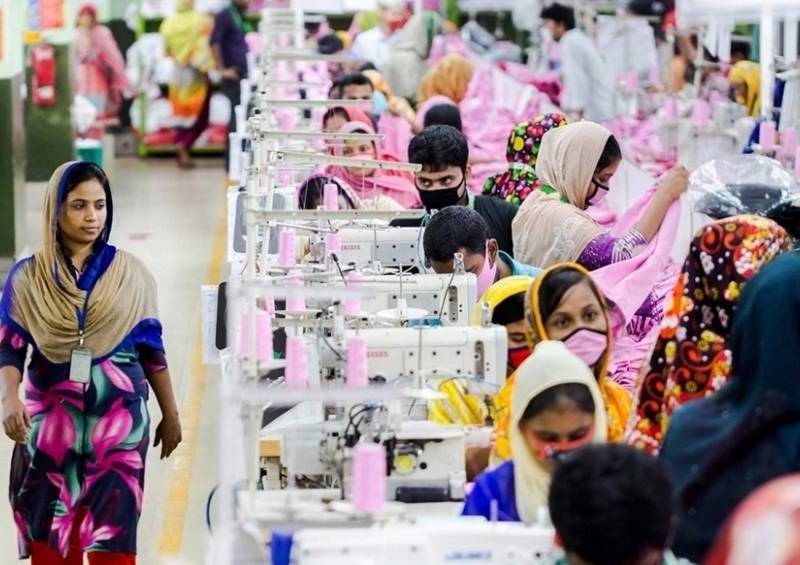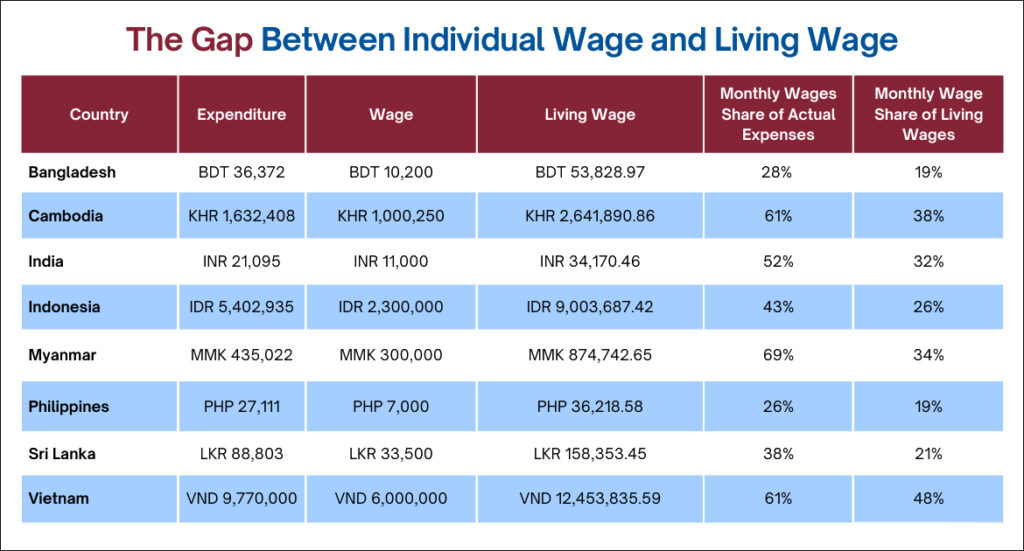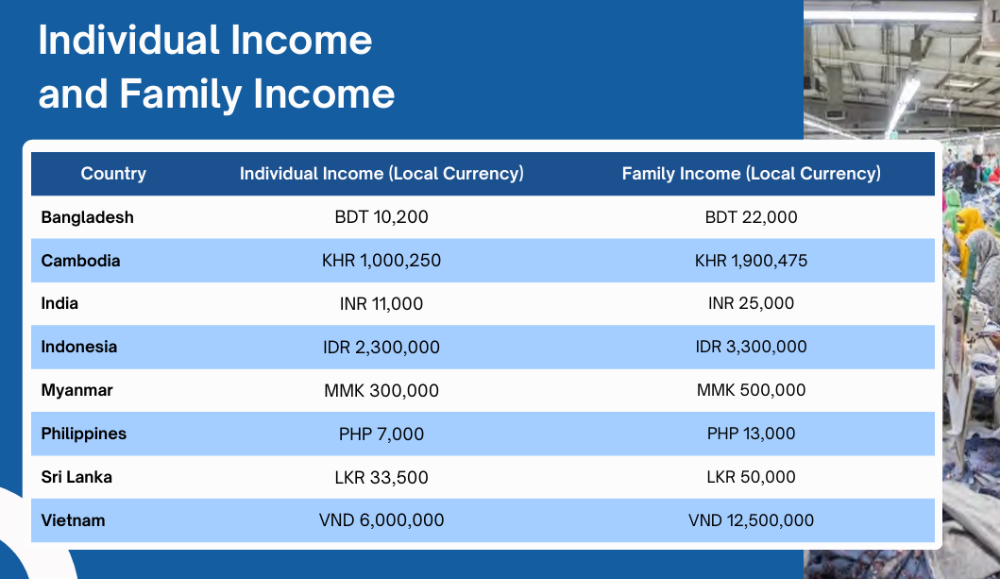AFWA’s 2024 Report Reveals Wages In Asia’s Garment Industry Fall Considerably Short Of Living Wage Benchmarks

The Asia Floor Wage Alliance (AFWA) has released its much-anticipated Path to a Living Wage report, which highlights glaring disparities between garment workers’ earnings and the wages required for a dignified standard of living. Covering eight key garment producing nations, the report underscores how poverty level wages continue to trap millions in financial insecurity despite the global growth of the garment sector.
The 2024 survey, conducted between December 2023 and February 2024, assessed wage adequacy, expenditure patterns and caloric consumption among over 3,000 workers in Bangladesh, Cambodia, India, Indonesia, Myanmar, Philippines, Sri Lanka and Vietnam. Findings reveal that workers’ wages fall significantly short of AFWA’s living wage benchmarks, with stark variations across countries. Workers in Bangladesh and the Philippines earn just 19% of the living wage required, while even in relatively better-performing Sri Lanka, the figure reaches only 21%.

Women, who form the majority of the garment workforce, bear the brunt of wage inequality. Non-food expenses, such as housing, healthcare and education, disproportionately strain their finances, further exacerbating gendered economic vulnerabilities. In addition, many workers reported severe food insecurity, with daily calorie intake averaging well below the recommended 3,000 calories per adult.
Debt is another persistent issue. According to the report, 88% of workers in the Philippines and 81% in Indonesia are struggling with financial liabilities, often resorting to loans to meet basic needs. The challenges are compounded by climate change, which disrupts livelihoods through rising temperatures, extreme weather events and rainfall inconsistencies. Over 95% of Cambodian workers and 87% of their Bangladeshi counterparts reported being directly impacted by these phenomena.

AFWA’s findings highlight food and housing as the primary expenditure categories for workers. In countries like Cambodia and Indonesia, securing 3,000 daily calories—a minimum requirement—is financially unattainable for most workers. Meanwhile, housing costs consume a substantial portion of incomes, leaving little for healthcare or savings.
The report calls for urgent intervention by brands, policymakers and trade unions. AFWA has urged brands to restructure purchasing practices and pricing mechanisms to enable supplier factories to pay living wages. Policymakers are encouraged to collaborate with unions to create progressive wage reforms, while trade unions are advised to leverage the survey’s data to strengthen collective bargaining efforts.

The Path to a Living Wage report also emphasizes the need for gender-sensitive policies to address systemic inequalities. By taking a regional approach, the report seeks to transcend national boundaries and present a unified demand for fair wages across Asia’s garment-producing countries.














